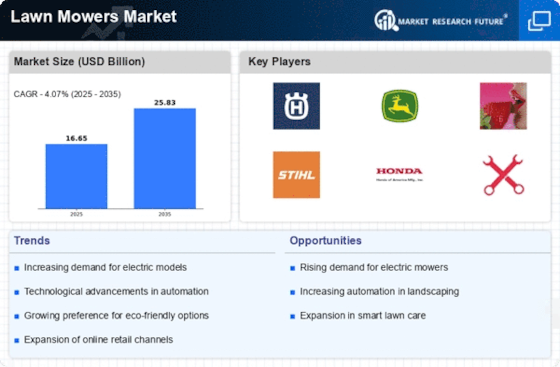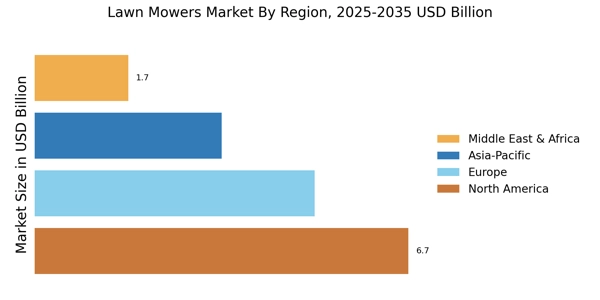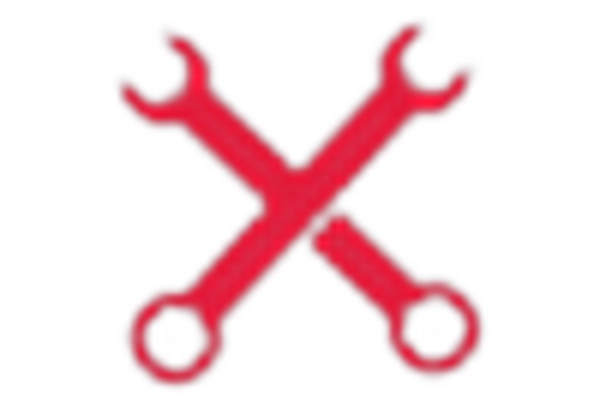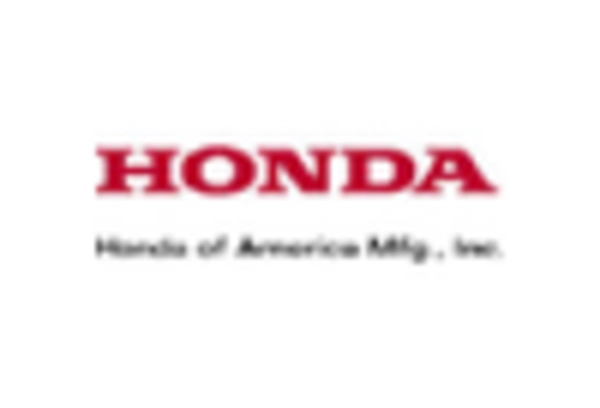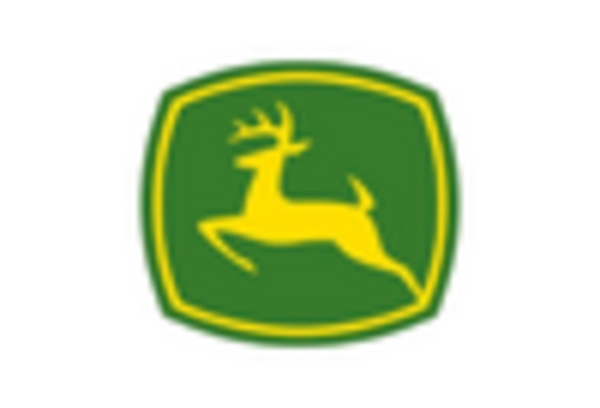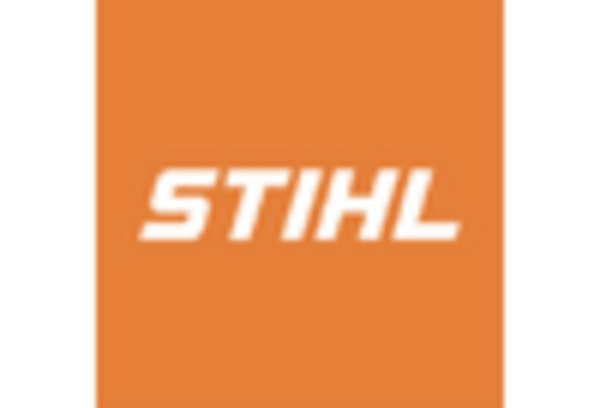Growth of E-commerce Platforms
The lawn mowers Market is experiencing a transformation due to the growth of e-commerce platforms, which are reshaping how consumers purchase lawn care equipment. Online shopping offers convenience and a wider selection of products, allowing consumers to compare features and prices easily. This shift has led to an increase in direct-to-consumer sales, as manufacturers leverage online channels to reach their target audience more effectively. Data indicates that e-commerce sales in the lawn care sector have seen substantial growth, with projections suggesting that this trend will continue. As more consumers turn to online platforms for their lawn mower purchases, the Lawn Mowers Market is adapting to meet this evolving consumer behavior.
Increased Focus on Lawn Aesthetics
The Lawn Mowers Market is witnessing a surge in consumer interest in lawn aesthetics, as homeowners increasingly prioritize the appearance of their outdoor spaces. This focus on aesthetics is driving demand for high-quality lawn mowers that can deliver superior cutting performance and precision. Consumers are now more inclined to invest in advanced mowers that offer features such as adjustable cutting heights and mulching capabilities. This trend is particularly evident in suburban areas, where well-maintained lawns are often seen as a reflection of property value. As the desire for aesthetically pleasing lawns grows, the Lawn Mowers Market is likely to see a corresponding increase in sales of premium lawn care equipment.
Urbanization and Landscaping Trends
Urbanization is significantly influencing the Lawn Mowers Market, as more individuals move to urban areas where green spaces are becoming increasingly valued. This trend has led to a rise in landscaping services, which in turn drives demand for various types of lawn mowers. Homeowners and landscaping professionals alike are seeking efficient and effective mowing solutions to maintain their properties. The market for commercial lawn care equipment is also expanding, with landscaping companies investing in high-performance mowers to meet client demands. As urban areas continue to grow, the Lawn Mowers Market is poised to benefit from this trend, with an expected increase in sales of both residential and commercial mowers.
Technological Advancements in Lawn Care
Technological advancements are playing a pivotal role in the Lawn Mowers Market, as innovations such as robotic mowers and smart technology integration become increasingly prevalent. These advancements not only enhance user convenience but also improve mowing efficiency and precision. For instance, robotic mowers equipped with GPS and sensors can navigate complex landscapes autonomously, reducing the need for manual intervention. The integration of smart technology allows users to control their mowers remotely via mobile applications, further streamlining lawn care. As these technologies continue to evolve, they are likely to attract a broader consumer base, thereby expanding the Lawn Mowers Market and driving sales.
Rising Demand for Eco-Friendly Solutions
The Lawn Mowers Market is experiencing a notable shift towards eco-friendly solutions, driven by increasing consumer awareness regarding environmental sustainability. As more individuals seek to reduce their carbon footprint, manufacturers are responding by developing electric and battery-operated mowers. This transition is not merely a trend; it reflects a broader societal movement towards sustainable practices. In fact, the market for electric lawn mowers is projected to grow significantly, with estimates suggesting a compound annual growth rate of over 10% in the coming years. This demand for greener alternatives is reshaping the Lawn Mowers Market, compelling companies to innovate and adapt their product lines to meet consumer expectations.


